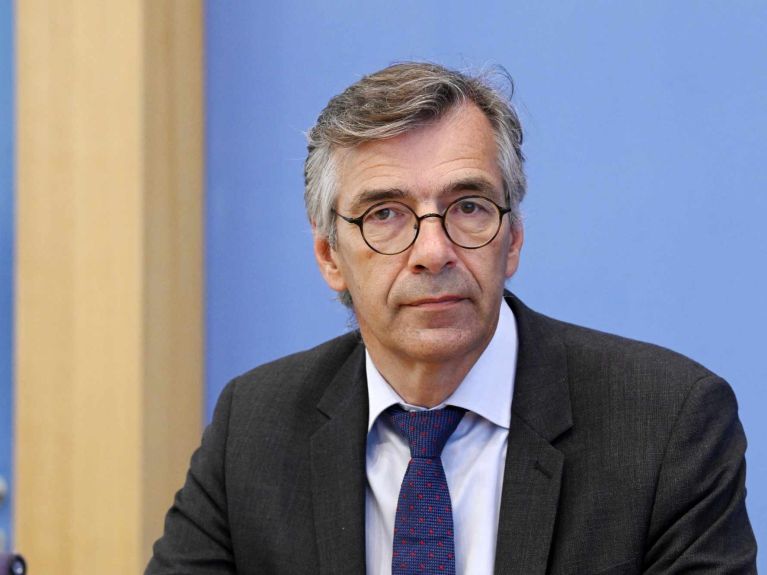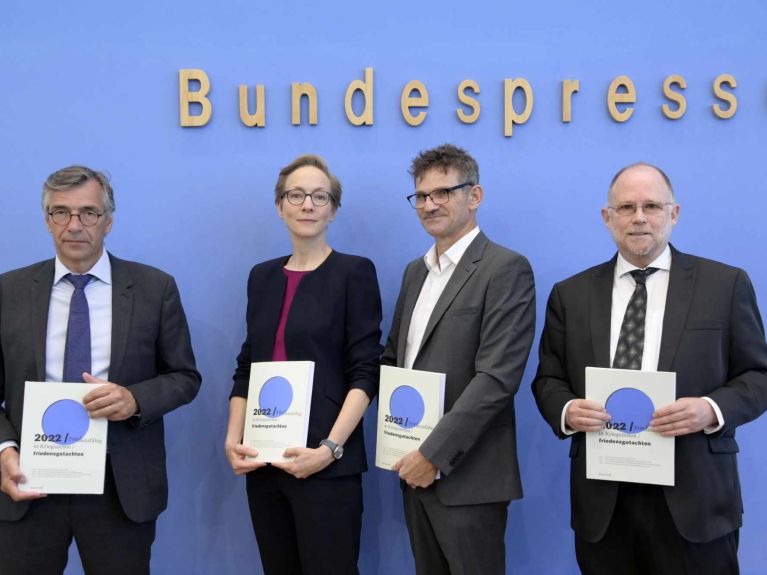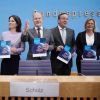The aim is people’s security
Will we have to give up freedoms for a new national security strategy? Some answers from peace researcher Christopher Daase.

Professor Daase, who does the National Security Strategy aim to support?
In democratic states it always focuses on the security of the citizens, in other words: in order to safeguard the people’s freedom to pursue a self-determined and dignified life, social and state institutions have to be able to function properly. That’s why security is often understood as the security of a state in the sense of territorial integrity and political self-determination. In the end, state security always serves to protect the people. But security doesn’t end at the national borders. And it is also true that, in addition to their own immediate interests, democratic states (and their societies) bear a certain amount of responsibility for the well-being of people in need.
Against which dangers is the security strategy supposed to offer protection?
National, social and human security are threatened by many different dangers. These include not only wars and conflicts, but also economic crises, environmental destruction, and climate change. The biggest challenge facing security policy is where to set priorities and thus minimize threats in such a way that other threats are not increased. But often considerations have to be weighed up very carefully, for instance when, as at the moment, cutbacks have to be made in social welfare (i.e. in economic security) in favour of alliance-political defence (i.e. military security).
Security not only limits freedom, it also enables it!
What do you think the new defence policy should look like?
In future defence policy will concentrate more on military defence and deterrence. That’s because Russia’s war against Ukraine has basically destroyed Europe’s peace and security architecture. Economic and social relations are also being affected. As a result, there will have to be a process of ‘controlled separation’, so that Germany can extract itself from unilateral dependencies (such as energy policies).
At the same time it is important to avoid absolute confrontation and instead keep our sights on the long-term objective of co-operative security policy. We can start developing ideas in this direction now, for instance how to embed the envisaged military build-up within armament control structures, so as to avoid the development of a new arms race.

How much freedom will we have to forfeit in exchange for security?
Traditionally it is assumed that security is always gained at the expense of freedom. The police are able to search houses in order to catch thieves; the army can recruit soldiers in order to defend the country; the state can increase taxes in order to improve the equipment of the armed forces. But if we are focusing on the security of the citizens as the main priority, then this is a case of safeguarding rather than restricting freedom, in other words, the right to lead a self-determined and dignified life. Security not only limits freedom, it also enables it! This means that society itself has to determine, either through elections, or by participating in political discourse, which state security policy they consider appropriate for which social freedoms.
Professor Christopher Daase is Deputy Director and Head of the Research Department at the Peace Research Institute Frankfurt (PRIF). He teaches at the Goethe University in Frankfurt.
You would like to receive regular information about Germany? Subscribe here:


